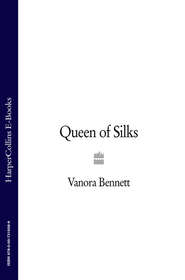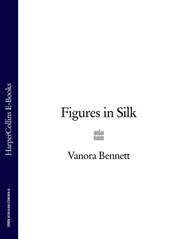По всем вопросам обращайтесь на: info@litportal.ru
(©) 2003-2024.
✖
Portrait of an Unknown Woman
Настройки чтения
Размер шрифта
Высота строк
Поля
Father, a pageboy in hose and fur-trimmed doublet, turning back the sheets and fluffing up the pillows late at night for the Archbishop, who’d also been Lord Chancellor to the old King, in his sanctum in the redbrick western tower of Lambeth Palace. Father was a boy tired after the daytime rituals of the house school, and the evening rituals of serving at table in the great hall, and already longing to join the other pageboys snuffling on their straw mattresses in the dormitory. But he was mindful too of the lessons of the books of courtesy and nurture, so he was also remembering not to lean against the wall, or cough, or spit, and to bow when he was spoken to, and to answer softly and cheerfully. (The boy More was so naturally skilled at all these arts of gentility that he’d become a favourite with his canny master, who’d taken to boasting publicly at table that ‘This boy waiting on you now, whoever shall live to see it, will prove a marvellous man.’) So when the Archbishop told him to take the tray of wine and meat and bread he’d brought up from the kitchens into the audience chamber next door – a public room of polished oak, never used at this hour – he stifled his fatigue and obeyed with the best grace he could.
And there in the audience room were two young men – coltish youths only slightly older than young More, with long limbs and travel-stained clothes, and swords propped against their boxes, drooping tiredly on the polished benches. With something watchful about the way they looked at him as he entered with the tray. And something angry about the way they looked at each other.
Try as he might, young More couldn’t imagine who these surprise guests were. He’d never seen them at the school. He’d never seen them among the pages serving in the great hall. Besides, they were too old to be pageboys. They already had the close-cropped hair of adulthood. And former pageboys didn’t suddenly show up to pay their respects in the middle of the night. In any case, their manners seemed too high-handed to have been learned in the Archbishop’s courtly home. ‘Wine,’ the older youth, who must have been seventeen or eighteen, said imperiously. Young More bowed and poured out the wine. ‘Wine,’ said the younger boy, who was black-haired with fierce eyes, clearly annoyed that there was only one goblet and pointing towards his own feet as though young More were a dog to be brought to heel.
But the boy More was not afraid of these headstrong youths. He just laughed politely.
‘Two drinkers, but only one vessel,’ he said, keeping his countenance as the books taught. ‘A problem I can quickly solve by running back to the kitchens for another goblet.’
And then an interruption – a great gale of laughter from the candlelit doorway, where they’d all forgotten that Morton, in his long linen nightshirt, was still watching them.
‘Bravo, young Thomas,’ he said richly. ‘Your poise puts everyone else here to shame. This one,’ and he pointed at the younger youth, who was now looking ashamed at being caught out in the uncouth business of bullying a child, ‘has clearly forgotten to live up to his name.’
And the black-haired wild boy stared awkwardly at his feet.
‘Tell the child your name, John,’ Morton said. ‘Let him in on the joke.’
‘Johannes,’ the youth said. He hesitated, in the manner of someone who might not really speak Latin. ‘Johannes Clemens.’
Johnny the Kind. Archbishop Morton catching young More’s eye, giving him permission to laugh. The small More joining in his master’s unkind mirth at the difference between the tall black-haired boy’s lovely name and unlovely behaviour. The older youth also beginning to guffaw. And, finally, John Clement himself – somewhat to More’s surprise – losing his sullen look, clapping the young More on the back, and, with more grace than the pageboy would have expected, joining in the laughter at his own expense.
‘… I liked that in him. We’ve been the best of friends since,’ Father ended, superbly relaxed. He was talking to me rather than to John, but I felt John also gradually relax as the story drew to its close, in a way that made me wonder if he’d perhaps been dreading a different ending – one that might discredit him in some way. ‘But I see you’re still a man of impulse, John. Turning up without warning.’ Father winked affably at me, encouraging me to laugh a little at the embarrassed figure between us. ‘Still reserving your right to surprise.’
‘So where had you come from that night?’ I asked the mute John, curious to see further into this glimpse of his past. ‘And where were you going?’
‘Oh,’ Father said smoothly, answering for John. ‘Well, that was so soon after the wars that things everywhere were still in confusion. John and his brother had been brought up by family friends after their own father died. But it was time for John to go to university. So he was stopping in London on his way abroad, to Louvain, where he was about to become the man of learning – the kindhearted man of learning’ – he chuckled again – ‘that everyone in our family has always loved so dearly.’
And now Elizabeth was joining our circle, breaking the conversation. ‘Won’t you play one of the servants, John?’ she was asking sweetly, and, before the pink-faced John could answer, wrapping him gently in a rough servant’s cloak and shepherding him away to join in the revels. He looked back at Father, as if asking a question; and Father, as if answering, nodded what might be permission for him to stay and play.
Left alone with me, Father turned a kindly gaze on my face. ‘You see how it is, Meg,’ he said. ‘I made a promise to the Archbishop long ago to keep an eye on John Clement. And I always will. I may always need to. He’s someone who’s endured a lot of losses in his life; and sometimes suffering leaves its mark on a man’s soul. With a man like that you have to take things slowly and carefully – and make sure there are no hidden depths you haven’t plumbed. But you’re a wise young woman. I’m sure you understand that …’
He held my gaze a moment longer than necessary. I didn’t know exactly what he meant, though the gentleness on his face now reminded me of the gentleness with which he’d treated Will Roper’s heresy. But I thought Father might be giving me a warning.
‘We had a good talk this afternoon,’ I said, masking my resentment behind a diplomatic smile of my own. Father was a fine one to talk about hidden depths, if he’d been secretly negotiating with John Clement for years about the conditions under which John might marry me, without ever giving me a hint of what was on his mind. ‘I was glad to see him after so long. I was glad to find out everything he told me.’
And I was pleased to see Father look more closely still at me, carefully now, with what seemed to be a question in his eyes. I held his gaze. It was he who turned his eyes away. ‘Good,’ he said, but without certainty; and he moved off into the crowd to attend to his guests.
And so the rest of the entertainment, with all its applause and rumbustious punch lines and flamboyance and laughter, was reduced for me to a watchfulness of eyes. John Clement’s eyes, avoiding mine and Elizabeth’s and Father’s alike. Elizabeth’s eyes, searching my face and John Clement’s with something I couldn’t read in her expression. Father’s eyes, coming thoughtfully to rest every now and then on John Clement. And, of course, Master Hans’s eyes, giving us all the same long, careful, considering looks I’d seen him direct John Clement’s way over dinner. A gaze that mapped the line of the back and the line of the heart at the same time. Which made me uncomfortable when I caught him staring for a slow moment at my hands moving in my lap. But which I then realised, with relief, probably signified nothing more than his artist’s pre-occupation with how best to paint us.
John Clement didn’t stay late. I saw him slip up to Father as soon as the play was over, while the costumes were still going back into their chests and the servants were setting out the supper, ready to make his excuses and go. I moved closer, wanting to hear but not to interrupt. But Father gestured me into the circle.
‘John tells me he has to leave now,’ Father said, with equal measures of warmth and splendid finality. ‘It’s been a joy that he’s found the time to let us welcome him here so soon after his return to London. And we’ll look forward to seeing him again here very soon, won’t we, Meg?’ He paused, and gave John another glance I didn’t understand, before adding: ‘As soon as he has had time to find his feet again in this country, after so long away. As soon as he wins election to the College of Physicians.’
I took John out to the doorway to help him into his cloak. Out in the half-darkness, with none of the other eyes on us any more, was the first time I dared look up and meet his eyes at last. And he looked straight back at me for the first time in what seemed like hours, with all the sweetness and love on his face that I could have hoped for, and with a hint of what looked like relief too.
‘You see, Meg,’ he said reassuringly, with one hand on the doorknob. ‘It’s as I said. We just have to wait a while. Doctor Butts promises that I’ll be put up for election this spring – it seems a long time, but it won’t be forever – and then everything will come right for us.’ And I felt his other arm move round my waist in farewell. ‘I’ll write,’ he murmured, opening the door and letting in the night wind. ‘I’ll be back. Soon. I promise you.’
And then he was nothing but a black figure on the black of the garden, flapping away down the path towards the water, leaving me confused but as hopeful as the silliest of serving girls that I was about to live happily ever after.
Elizabeth sidled up and looked sideways at me as soon as I slipped back in.
‘Master Hans has been making sheep’s eyes at you all evening,’ she said, with one of her brittle little laughs. ‘I think you’ve made a conquest.’
I might have been embarrassed. It was just the kind of needling observation Elizabeth was too good at for anyone else’s comfort. But luckily Master Hans wasn’t making sheep’s eyes at me now. He was sitting at the table, glowing in the warmth of Father’s undivided attention, which, as it always did with everyone, was making him feel confident and expansive. He had a miniature copy of the portrait of Erasmus that he had taken to Archbishop Warham propped on the table, and a sketch of the answering portrait of the Archbishop’s cavernous old features that he was planning to take back to Erasmus in Basel – he’d clearly struck lucky in his first two weeks in England to have got that commission (but then Warham, one of Father’s bishop friends, had always been a kindly old soul, and even if he hadn’t been it was fast becoming derigueur to repay the gift of one of Erasmus’ portraits in kind). Now he was talking enthusiastically in his accented English about how to do our family painting. I could see Holbein was a good salesman. There was already talk of two separate pictures – a portrait of Father by himself, to send to the other humanists around Europe, as well as the group picture for our hall that the German had originally been asked to make – and he was showing Father a completed picture too, a noli-me-tangere with a virtuous Christ shying away from a voluptuous Mary Magdalene, which I could see had struck a chord with Father and was about to bring the painter another easy sale. I sat quietly down near them to listen.
‘There was a fresco I saw at Mantua,’ Holbein was saying, so carried away by his idea that he was beginning to move saltcellars and knives around on the table to illustrate it. ‘I can’t get it out of my head … The Duke and his dearest love, his wife, facing each other sideways-on near the middle of the canvas … the family all around… someone leaning forward from the left for instructions…’ He paused gleefully, visibly expecting to be praised for his cleverness. ‘And, right at the centre, looking straight out of the picture,’ he said, then burst out laughing at his own joke, ‘the Duke’s dwarf!’
It was a slightly shocking idea. There was a moment’s silence when we all looked at Father, waiting to see how he would react. He paused for a second too. Then his face opened in helpless laughter – the kind of generous approval that made people everywhere love him. ‘The fool at the heart of the family! That’s a marvellous idea!’ he snorted; and, without having been aware before of any tensions in his face, we could see all the worries of the court being wiped from it now, and we all began laughing too, in relief and sympathy and soft, adoring love.
‘Let’s see how it would look,’ Father said, still grinning mischievously, and with his mind full of the idea. ‘Henry!’ And he beckoned out the fat simpleton from the corner. ‘We have our own king of fools here, as you see,’ he told Master Hans, and in a flash of enlightenment I saw in Henry Pattinson, the ginger fool whom Father so loved, a grotesque parody of the big features of golden King Henry himself, and wondered if that was why Father kept him; and wondered, if that were so, at the daring in Father’s apparently disingenuous remark (and whether Master Hans had had it in mind all along to put our Henry the Fool at the heart of our family).
Before we knew it, we were in position, with Master Hans, masterful now, walking us to the places he’d given us in his mind’s eye. Henry Pattinson staring, blank and baffled as ever, straight towards the artist. Father and his daughter Margaret Roper facing each other slantways (I was impressed at Master Hans’s quick understanding of who Father’s great love was). Me next to Elizabeth, and leaning over Grandfather to whisper into his deaf ear. Everyone else either arranged around us or watching and clapping us on.
And then, in the middle of the hubbub, Elizabeth whispered, ‘Where’s John Clement?’
‘Gone,’ I whispered back.
‘What, without even saying goodbye?’ she said, louder, and she turned her head so sharply round to look at me that she broke the composition of the group. Master Hans looked up, warning us with his eyes not to step out of line.
‘He had to leave,’ I muttered, frozen in my artificial position, looking down at Grandfather’s velvet-wrapped old knees.
‘Stay still,’ Master Hans called to us.
She looked back at him. ‘I’m sorry, Master Hans,’ she said, in a small voice. ‘I’m afraid I’m not feeling very well. I think I’ll have to go to my room.’
And she detached herself from the group and left the room, followed, after a moment’s indecision, by the bobbing Adam’s apple of her husband. She did look pale.
We might have stopped then. But Father quickly filled the gap. He was too fascinated by the painter’s imagining to countenance the group breaking up. The two men were revelling in the speed with which they’d come to an intellectual understanding, laughing together and catching each other’s eyes as they saw the picture take shape. ‘John,’ Father called with a smile (knowing there were enough Johns in the room to stand in for multiple defectors), ‘will you take Elizabeth’s place?’ And so the actors didn’t disperse until after Holbein, who had magicked a scrap of chalk and a slate out of the old leather bag he kept with him, had finished a lightning sketch of how we would stand in our picture – a representation of the perfect humanist family that would be new in itself, as playful and forward-looking as any of the new learning, a far cry from the stiff old depictions of pious artists’ patrons as saints with which rich men still liked to fill their chapels. And the party carried on until late in the evening, when, a moment after Father excused himself to write business letters and slipped away to the New Building, the light suddenly seemed to go out of the room, and all the guests remembered how tired they were and went to bed.
It was only late at night, when I was lying in bed (unable to sleep with excitement, my heart bursting at the memory of all that had happened that day and with all the plans I was making for my future with John), that I heard Elizabeth retching behind the closed door of her room, and the scrape of a chamber pot, and William’s nasal whispering. I couldn’t hear his words, but his tone was the mix of reassuring and nervous you’d expect from any father-to-be. It began to dawn on me what the reason for her sudden discomfort might have been.
5 (#uc5ddf376-f561-5d1b-97d9-d2eb00e0b316)
‘Elizabeth,’ I whispered. ‘Elizabeth. Are you all right?’
It was still dark. Just before four in the morning, long before first light, but long after I’d heard Father’s footsteps tiptoeing down the corridor to begin his early shift of work and prayer in the New Building. In a few minutes the household would begin to stir.
It was hours since I’d sprung awake again and lain warm under the counterpane up to my frosty nose, waking up to joy and quietly loving the cold, creaking silence in which I could hug my secret to myself. But the miserable sounds coming from Elizabeth’s room hadn’t stopped. They were still going on now.
So I put a shawl over my shoulders and slipped out to the corridor, to pat at her door and see if I could help. I was the one with the medicine chest and the knowledge.
She wouldn’t answer.
I shivered. I could hear the fires being laid downstairs.
Eventually footsteps did pad up to the other side of the door. I breathed out in relief.
But it wasn’t Elizabeth’s head that poked out. It was William’s – tousled, drawn and more pink-eyed than ever from lack of sleep.









